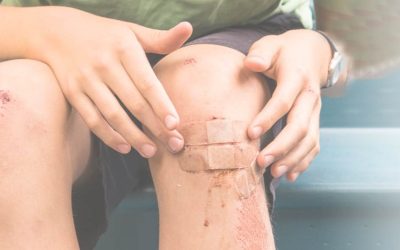Dog Bites? Cat Bites? Here’s what to do ..
We have two dogs at home and spent a great deal of time training them to never, ever bite. We spend time every week poking their noses, pulling their tails and sneaking up on them to rid them of their natural ‘dog instincts’. I think dogs may all act out of fear if scared enough or pushed to their limits, so we work hard to minimize the risk, we hope.
If a cat or dog bites your child or you, here is what I suggest:
- If bleeding excessively, wrap in a clean towel and head to the emergency department ASAP
- Apply pressure to stop bleeding
- If bleeding minimally or not at all, run some clean water over it and wash with soap and water
- Apply a clean bandage to the wound
- Keep the injured area above heart level to slow swelling
- Report the injury to your vet or animal control office – they can help look into whether you or your child need vaccines such as for rabies
- Have the wound looked at by a doctor – it needs to be cleaned well, and occasionally closed. Tendon, bone and muscle injury will be assessed.
- Wound care – we often leave these wounds open to prevent infection from getting stuck in the wound
- Antibiotics may be prescribed to prevent infection and improve wound healing
- Your doctor may want to see the wound within a few days to ensure appropriate healing.
Please call your doc, or go to the emergency room ASAP if:
- You or your child has a dog bite or cat puncture wound. Minor animal scratches can be looked at the next day
- You are unsure of the vaccine status of the animal or if it is a wild animal
- Your child is not up to date on vaccines, particularly tetanus.
- The bleeding does not stop with direct pressure after 10 minutes
- You think there is a broken bone, tendon or nerve damage. If the area doesn’t seem or feel right, please get it checked out.
- If there are any signs of infection – fever, redness, swelling, pus or increasing tenderness at the wound site.
Will rabies vaccination be required?
Rabies is incredibly uncommon in Canada. Domesticated animals rarely carry rabies and few wild animals do either. If the animal is available for testing, this is a great first step. If the animal tests negative for rabies there is no need for rabies vaccine. If the animal is rabies vaccinated, there is no concern. If the animal is wild and cannot be tested your doctor may elect to give the rabies vaccine schedule.
Preventing bites
- Don’t leave your child alone with any animal, even if it’s a family pet. Animals can act unpredictably.
- Teach your children to avoid sneaking up or startling animals and to avoid taking their food or toys
- Keep pets on a leash when outside
- Ensure your pet’s vaccines are up to date
Check this out for more on wound care.
On a positive note, check out why I love having pets at home.










